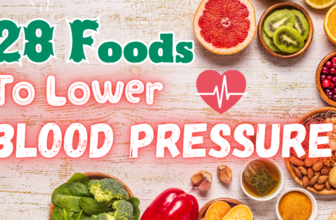Keto Diet: A Complete Guide
Table of Contents
Toggle
The ketogenic diet, commonly known as the keto diet, has gained immense popularity in recent years for its potential to aid in weight loss, improve health markers, and enhance mental clarity. This low-carb, high-fat diet emphasizes a dramatic shift in macronutrient intake to induce a state of ketosis in the body. Ketosis is a metabolic state where the body primarily burns fat for fuel instead of carbohydrates. In this comprehensive guide, we will delve into the principles, benefits, potential risks, and practical aspects of the keto diet, equipping you with the knowledge to make informed decisions about whether it’s suitable for you.
Table of Contents:
- What is the Ketogenic Diet?
- How Does the Keto Diet Work?
- Understanding Ketosis
- Ketones: The Alternative Fuel Source
- Macros on Keto: Balancing Carbs, Protein, and Fat
- Health Benefits of the Keto Diet
- Weight Loss and Fat Burning
- Improved Insulin Sensitivity
- Enhanced Mental Clarity and Focus
- Potential Benefits for Certain Medical Conditions
- Foods to Eat on the Keto Diet
- Healthy Fats
- Low-Carb Vegetables
- Protein Sources
- Nuts and Seeds
- Dairy and Dairy Alternatives
- Foods to Avoid on the Keto Diet
- High-Carb Foods
- Sugary Treats and Desserts
- Starchy Vegetables and Grains
- Potential Risks and Side Effects of the Keto Diet
- Keto Flu: What it is and How to Manage it
- Nutrient Deficiencies
- Digestive Issues
- Increased Cholesterol Levels
- Long-Term Implications
- Getting Started with the Keto Diet
- Calculating Your Macros
- Meal Planning and Prepping
- Keto-Friendly Snacks
- Eating Out on Keto
- Keto Diet and Exercise
- Fueling Your Workouts
- Exercise Adaptation on Keto
- Balancing Cardio and Strength Training
- Monitoring Your Progress
- Tracking Weight Loss
- Measuring Ketone Levels
- Evaluating Health Markers
- Staying Safe and Sustainable on Keto
- Importance of Whole Foods
- Avoiding Extreme Restriction
- Considering Individual Needs and Health Conditions
- Frequently Asked Questions (FAQs) about the Keto Diet
- Conclusion
1. What is the Ketogenic Diet?
The ketogenic diet is a high-fat, moderate-protein, and low-carbohydrate eating plan that aims to shift the body’s metabolism from relying on carbohydrates for energy to utilizing fat as the primary fuel source. This dietary approach has been around for almost a century, initially developed as a therapeutic intervention for epilepsy patients, especially those who did not respond to traditional treatments.
In recent years, the keto diet has gained popularity beyond epilepsy management, with people adopting it for weight loss, improved athletic performance, and various health benefits.
2. How Does the Keto Diet Work?
Understanding Ketosis
The fundamental principle of the keto diet is to induce a state of ketosis in the body. Ketosis is a natural metabolic process where the body produces ketones, which are small molecules produced from the breakdown of fat in the liver.
When carbohydrate intake is significantly reduced, as is the case with the keto diet, the body’s glucose levels drop, leading to a decrease in insulin production. As a result, the body turns to stored fat as its primary source of energy.
Ketones: The Alternative Fuel Source
During ketosis, the liver converts fatty acids into ketones, which serve as an alternative fuel source for the brain and body. While glucose remains the brain’s preferred fuel, ketones can efficiently fuel the brain and other organs during periods of low carbohydrate intake.
Macros on Keto: Balancing Carbs, Protein, and Fat
To achieve ketosis, it’s essential to carefully balance macronutrient intake:
- Carbohydrates: Carbohydrates are drastically restricted on the keto diet, typically limited to 20-50 grams per day. By minimizing carb intake, the body’s glucose levels remain low, encouraging the shift to burning fat for fuel.
- Protein: Protein intake is moderated to prevent excess protein from being converted into glucose through a process called gluconeogenesis. Consuming too much protein may hinder ketosis.
- Fat: Fat becomes the primary source of energy on the keto diet, making up the majority of daily caloric intake. Healthy fats from sources like avocados, nuts, seeds, and olive oil are emphasized.
3. Health Benefits of the Keto Diet
Weight Loss and Fat Burning
One of the primary reasons people turn to the keto diet is its potential for weight loss. Ketosis facilitates fat burning, leading to a reduction in body fat and weight. Moreover, the diet’s high-fat content can induce a feeling of satiety, which may help control appetite and reduce overall calorie intake.
Improved Insulin Sensitivity
The keto diet has shown promise in improving insulin sensitivity, a critical factor in managing blood sugar levels. Reduced carbohydrate intake and lower insulin levels can benefit individuals with insulin resistance or type 2 diabetes.
Enhanced Mental Clarity and Focus
Some individuals report improved mental clarity and focus on the keto diet. Ketones are a more efficient fuel source for the brain, and some studies suggest that ketosis may enhance cognitive function.
Potential Benefits for Certain Medical Conditions
Apart from its original therapeutic use for epilepsy, the keto diet is being studied for its potential benefits in managing other medical conditions, such as:
- Type 2 Diabetes: The keto diet’s low-carb approach can help stabilize blood sugar levels and improve glycemic control in individuals with type 2 diabetes.
- Metabolic Syndrome: The keto diet may help manage metabolic syndrome by addressing factors like obesity, insulin resistance, and high blood pressure.
- Polycystic Ovary Syndrome (PCOS): Some research indicates that the keto diet may benefit women with PCOS by improving hormonal imbalances and promoting weight loss.
- Neurological Disorders: The keto diet is being explored for its potential in managing conditions like Alzheimer’s, Parkinson’s, and migraines.
4. Foods to Eat on the Keto Diet
When following the keto diet, focus on consuming foods that are low in carbohydrates but high in healthy fats and moderate in protein. Some keto-friendly foods include:
Healthy Fats:
- Avocado and avocado oil
- Olive oil
- Coconut oil
- Butter and ghee
- Nuts and seeds (almonds, walnuts, chia seeds, flaxseeds, etc.)
Low-Carb Vegetables:
- Leafy greens (spinach, kale, arugula, etc.)
- Cruciferous vegetables (broccoli, cauliflower, cabbage, etc.)
- Zucchini
- Bell peppers
- Asparagus
- Green beans
Protein Sources:
- Fatty fish (salmon, mackerel, sardines)
- Poultry (chicken, turkey)
- Grass-fed beef
- Eggs
Nuts and Seeds:
- Almonds
- Walnuts
- Chia seeds
- Flaxseeds
- Pumpkin seeds
Dairy and Dairy Alternatives:
- Full-fat cheese
- Greek yogurt
- Coconut milk
5. Foods to Avoid on the Keto Diet
To maintain ketosis, it’s crucial to steer clear of high-carb foods that can disrupt the metabolic state. Some foods to avoid on the keto diet include:
High-Carb Foods:
- Grains (wheat, rice, oats, etc.)
- Legumes (beans, lentils, chickpeas, etc.)
- Sugary fruits (bananas, grapes, mangoes, etc.)
- High-sugar beverages (sodas, fruit juices, sweetened teas, etc.)
Sugary Treats and Desserts:
- Cakes
- Cookies
- Pastries
- Ice cream
- Candy
Starchy Vegetables and Grains:
- Potatoes
- Sweet potatoes
- Corn
- Rice
6. Potential Risks and Side Effects of the Keto Diet
While the keto diet offers several health benefits, it’s essential to be aware of potential risks and side effects:
Keto Flu: What it is and How to Manage it
In the initial stages of transitioning to a keto diet, some individuals may experience flu-like symptoms, known as the “keto flu.” These symptoms can include headache, fatigue, dizziness, nausea, and irritability. The keto flu is temporary and typically occurs as the body adapts to using ketones for fuel instead of glucose.
To manage the keto flu, it’s essential to stay hydrated, ensure adequate electrolyte intake (sodium, potassium, magnesium), and give the body time to adjust to the new dietary pattern.
Nutrient Deficiencies
Restricting certain food groups on the keto diet can lead to potential nutrient deficiencies. For example, the diet may lack certain vitamins and minerals found in fruits, whole grains, and legumes.
To prevent nutrient deficiencies, it’s crucial to focus on nutrient-dense foods, consider supplements if needed, and maintain a well-rounded diet.
Digestive Issues
Some individuals may experience digestive issues when starting the keto diet, such as constipation or diarrhea. These issues can arise due to changes in dietary fiber intake and adjustments in gut microbiota.
To alleviate digestive issues, it’s essential to consume enough fiber from low-carb vegetables and consider probiotic-rich foods to support gut health.
Increased Cholesterol Levels
In some cases, the keto diet can lead to an increase in LDL cholesterol levels. While LDL cholesterol is commonly referred to as “bad” cholesterol, it’s essential to consider the overall cholesterol profile and assess other cardiovascular risk factors.
If concerned about cholesterol levels, consult a healthcare professional for guidance on managing cholesterol through dietary and lifestyle changes.
Long-Term Implications
The long-term effects of the keto diet are still being studied, and more research is needed to understand its implications on various health markers and overall health outcomes.
It’s essential to approach the keto diet as a tool for short-term use or as part of a carefully managed long-term strategy under the guidance of a healthcare professional.
7. Getting Started with the Keto Diet
Before embarking on the keto diet, consider the following steps to ensure a successful and sustainable journey:
Calculating Your Macros
Determining your daily macronutrient needs is crucial for achieving and maintaining ketosis. Online keto calculators can help you estimate your ideal macro ratios based on factors like age, weight, activity level, and health goals.
Meal Planning and Prepping
Plan your meals in advance to ensure you meet your daily macros and stay on track with the keto diet. Meal prepping can save time and make it easier to stick to the diet, especially on busy days.
Keto-Friendly Snacks
Having keto-friendly snacks on hand can help curb cravings and prevent reaching for high-carb options. Consider snacks like nuts, cheese, avocado, or keto-friendly protein bars.
Eating Out on Keto
Eating out while following the keto diet can be challenging but not impossible. Look for keto-friendly options on the menu, such as salads with protein and healthy fats, or customize your order to fit the keto guidelines.
8. Keto Diet and Exercise
Fueling Your Workouts
On the keto diet, the body relies on stored fat for energy during exercise. While some individuals report improved endurance on keto, others may experience a period of adjustment as the body adapts to using ketones as fuel.
For intense workouts or endurance activities, some keto dieters choose to consume targeted or cyclical ketogenic diets, where they strategically consume carbohydrates around workout times.
Exercise Adaptation on Keto
During the initial stages of the keto diet, some individuals may experience a decrease in exercise performance due to the body’s adjustment to using ketones. However, as the body becomes fat-adapted, many individuals report improvements in their exercise capacity and endurance.
Balancing Cardio and Strength Training
Both cardio and strength training can be beneficial on the keto diet. Cardio exercises can help burn calories and promote overall cardiovascular health, while strength training supports muscle maintenance and growth.
9. Monitoring Your Progress
Tracking Weight Loss
Monitoring weight loss progress can provide valuable feedback on the effectiveness of the keto diet. Remember that weight loss may vary among individuals, and factors like body composition, metabolism, and adherence to the diet play a role.
Measuring Ketone Levels
Measuring ketone levels through blood, urine, or breath tests can confirm whether you are in ketosis. However, it’s essential to remember that being in ketosis doesn’t guarantee weight loss or other health benefits.
Evaluating Health Markers
Beyond weight and ketone levels, consider evaluating other health markers such as blood pressure, blood sugar, cholesterol, and overall well-being. Consulting with a healthcare professional for periodic health assessments can provide a comprehensive view of your progress.
10. Staying Safe and Sustainable on Keto
Importance of Whole Foods
While some keto-friendly processed foods are available, prioritizing whole, nutrient-dense foods is crucial for optimal health. Focus on a variety of vegetables, high-quality protein sources, healthy fats, and low-sugar fruits.
Avoiding Extreme Restriction
The keto diet can be effective for many people, but it’s essential to avoid extreme restriction or overly restrictive eating habits. Find a balance that fits your individual needs and preferences.
Considering Individual Needs and Health Conditions
Before starting the keto diet, consider your unique health profile, medical history, and any existing health conditions. The keto diet may not be suitable for everyone, and it’s essential to consult with a healthcare professional before making significant dietary changes.
11. Frequently Asked Questions (FAQs) about the Keto Diet
Q1: Is the keto diet safe for everyone? A: The keto diet may not be safe for individuals with certain medical conditions, such as pancreatitis, liver disease, or gallbladder issues. It’s essential to consult with a healthcare professional before starting the keto diet, especially if you have any underlying health concerns.
Q2: How long does it take to enter ketosis? A: The time it takes to enter ketosis varies among individuals. Some may achieve ketosis within a few days, while others may take up to a week or longer. Consistently following the diet and minimizing carb intake will help promote ketosis.
Q3: Can I drink alcohol on the keto diet? A: Alcohol consumption can hinder ketosis and may lead to overeating. If you choose to consume alcohol on the keto diet, opt for low-carb options like dry wines or spirits without sugary mixers.
Q4: What are the potential long-term effects of the keto diet?
A: While the keto diet has shown promising short-term benefits, its long-term effects are still being studied. Some concerns include potential nutrient deficiencies due to limited food choices, increased saturated fat intake, and the impact on kidney function with a high-protein version of the diet.
It’s essential to approach the keto diet as a tool for short-term use or as part of a carefully managed long-term strategy. For some individuals, adopting a cyclical or targeted keto diet (where they incorporate higher carb days strategically) may be more sustainable over the long term.
Q5: Can vegetarians or vegans follow the keto diet?
A: Vegetarians can follow a modified keto diet by emphasizing plant-based protein sources like tofu, tempeh, and protein-rich vegetables while limiting carb-heavy foods like grains and starchy vegetables. Vegans may find it more challenging to follow the traditional keto diet due to the restriction of animal-based foods. However, they can still achieve a low-carb, high-fat diet by incorporating plant-based fats like avocados, nuts, and coconut oil.
Q6: Will I experience a keto plateau?
A: Like any diet, weight loss progress on the keto diet can vary. Some individuals may experience a plateau where weight loss slows down or stalls temporarily. This is a natural part of the weight loss journey and can occur due to various factors, such as changes in metabolism, water retention, or adjustments in physical activity. If you experience a plateau, consider adjusting your calorie intake, reassessing your macronutrient ratios, or introducing intermittent fasting to jumpstart progress.
Q7: Is the keto diet suitable for athletes?
A: The keto diet can be adapted for athletes, but it may not be suitable for high-intensity, anaerobic exercises that rely heavily on glycogen stores. Some athletes choose to use the keto diet for endurance sports or low-to-moderate intensity activities, where the body can efficiently utilize fat as a fuel source. Athletes interested in adopting the keto diet should consult with a sports nutrition expert to tailor their nutrition plan based on their specific training needs and goals.
Q8: How can I maintain muscle mass on the keto diet?
A: To preserve muscle mass on the keto diet, it’s essential to consume adequate protein and engage in resistance training exercises. Protein is crucial for muscle repair and maintenance, especially when carbohydrate intake is limited. Incorporating strength training into your fitness routine can help stimulate muscle growth and prevent muscle loss.
Q9: Can I cheat on the keto diet?
A: While some individuals may incorporate occasional “cheat meals” into their diet, it’s essential to consider the potential impact on ketosis and overall progress. Frequent cheat meals can disrupt ketosis and make it more challenging to achieve your health and weight loss goals. If you choose to have a cheat meal, aim to do so mindfully and get back on track with your keto plan afterward.
12. Conclusion
The keto diet is a low-carb, high-fat eating plan that has gained popularity for its potential benefits, including weight loss, improved insulin sensitivity, enhanced mental clarity, and potential therapeutic effects for certain medical conditions. It involves a significant shift in macronutrient intake, encouraging the body to enter a state of ketosis, where it relies on fat for fuel.
Before starting the keto diet, it’s essential to consider your individual health profile, consult with a healthcare professional, and be aware of potential risks and side effects. While many people find success with the keto diet, it may not be suitable for everyone, and long-term effects are still being studied.
If you decide to embark on the keto journey, focus on whole, nutrient-dense foods, prioritize healthy fats, and incorporate adequate protein. Be mindful of potential nutrient deficiencies and consider supplementation if needed. Regular monitoring of your progress, health markers, and how your body responds to the diet will help you make informed decisions on its sustainability and effectiveness for your unique needs.
Remember that achieving and maintaining a healthy lifestyle involves a balanced approach, and the keto diet can be one tool among many to support your overall health and well-being.







